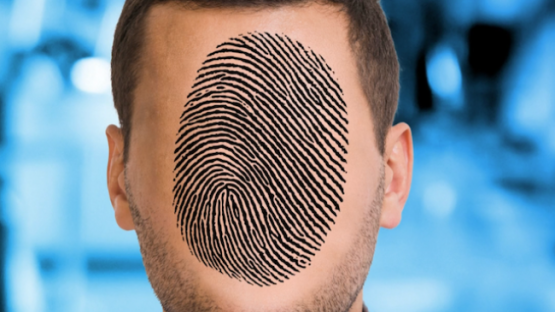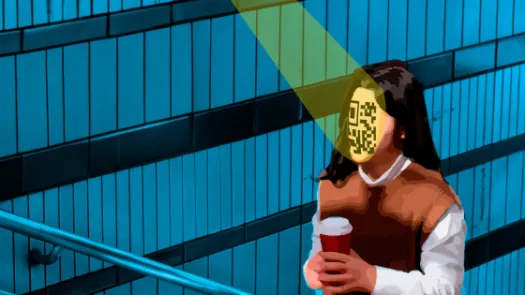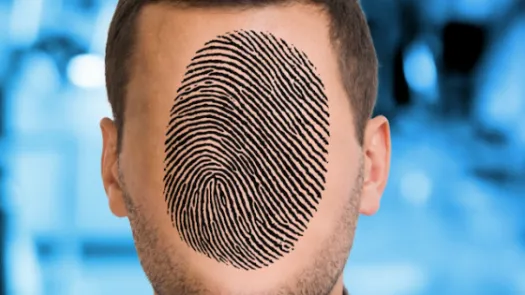
Latest developments with facial recognition technology in the UK

Introduction
For years PI has been exposing and advocating against the use of facial recognition technology (FRT) and the grave threats it poses to our rights. This highly invasive technology is paving the way to a dystopian, biometric surveillance state, where everyone is identified and tracked everywhere they go, in real time, as they move through public spaces during their everyday lives. Furthermore, this is taking place within a democratic vacuum, without any specific legislation pertaining to FRT. In spite of this, the police and private companies continue to ramp up the use of FRT in public spaces throughout the UK, without scrutiny, and with tacit support from the UK government.
In late 2023, this prompted us to run our campaign challenging the increased use of FRT - “The End of Privacy in Public” which was founded on the results of our YouGov survey which assessed MPs’ knowledge of FRT in their own constituencies, and revealed that MPs are asleep at the wheel when it comes to this unsolicited use of FRT in our local communities.
So far this year, the UK government has taken further steps to increase the use of FRT, from proposals within the Criminal Justice Bill, to dedicated spending for FRT within the Spring budget. Given such developments, it is clear that the expansion of FRT on our streets has been a top priority for the UK government, and the continued absence of legislation around the issue threatens our fundamental rights.
Criminal Justice Bill
The Criminal Justice Bill was introduced to Parliament by the Home Office in November 2023 and progressed to report stage in the House of Commons in May 2024.
Of particular concern was Clause 27 of the Bill, which was to allow the Secretary of State to create regulations to grant police and another 19 bodies further access to driver licence records, such as the Driving Vehicle License Agency (DVLA) records, by amending Section 27 of the Criminal Justice and Court Services Act 2000. The regulations were to expand the reasons for which the police and other bodies could access DVLA records beyond their current legal restriction to road traffic offenses, to include general “purposes and circumstances as are related to policing or law enforcement”. Access to DVLA records were to also be expanded to a greater number of public authorities under new regulations, allowing access by bodies such as the National Crime Agency (NCA).
Plans to grant access to DVLA records for policing purposes beyond road traffic offenses were vague and expansive by design. It was clear from statements made by the government that one purpose for which the Home Office intended the bill was for law enforcement to access the DVLA records to facilitate the expanded use of facial recognition technology (FRT). Chris Philp MP, Minister for Crime, Policing and Fire, outlined these intentions during a committee session for the Bill, stating:
There is a power in clause 21 (now clause 27) to allow police and law enforcement, including the NCA, to access driving licence records to do a facial recognition search, which, anomalously,is currently quite difficult.
He further reiterated:
The purpose is to give police access to driver licence records — particularly the photograph — which is currently only readily accessible for road traffic purposes. The idea is that they can be used for facial recognition searches, where an image is retrieved from a crime scene from CCTV. That might include a shoplifting offense. This would make the DVLA driving license database searchable by the police, in the same way that other databases are, including for facial recognition purposes.
Therefore, Clause 27 appears to be the first tangible example of the government's intentions to provide access to a biometric database established for other purposes, in this case driver licences, that law enforcement could draw upon for the purpose of FRT at a press of a button. This was unfortunately one of the many plans' of the UK government to amalgamate a number of existing databases, including UK passport images, to facilitate the use of FRT.
The UK government’s intentions to grant the police access to databases which include a facial image, including driving license records and eventually passport data, are both unnecessary and disproportionate insofar as they threaten to treat the whole population as if they are part of a virtual line-up, suspected of having committed a crime. Furthermore, the granting of access to a wide range of public bodies beyond the police, for as yet unknown purposes, opens the door to potential future misuse and function creep. More generally, it compounds the roll out of authoritarian technology in society.
It was also concerning that the regulations created by Clause 27 were to be implemented at a later stage, via a negative procedure, “following engagement between the Information Commissioner’s Office, DVLA and Department for Transport”. In effect, this means they would have been subject to limited scrutiny and, once signed by the Minister, would automatically remain in law unless a motion to reject them is agreed by either House within 40 days. This is entirely inappropriate, given the intended purpose and scale of the intrusion. These concerns were also raised by other civil society organisations during the Committee stage of the legislative process.
Following the announcement of a UK General Election to take place on the 4th July, the Criminal Justice Bill was subsequently dropped before making it into law due to the dissolution of parliament in the run up to the election. We will continue to monitor any resurgence of such measures.
UK Spring Budget
Aligning with such plans, it was no surprise that the UK government’s Spring 2024 Budget committed a vast amount of public spending to new technologies in policing. The budget outlined the government’s intention to provide police forces with £230 million for the delivery of police technology pilot schemes, such as live facial recognition, automating the triage of 101 calls, and deploying drones as first responders. The budget further reveals plans to support forces to implement these technologies by establishing a ‘Centre for Police Productivity’ to support police forces’ use of data and deliver these technologies, which they claim will maximise “productivity and the use of AI”.
Furthermore, on the 10 April 2024, as part of a wider policy for tougher punishments for retail related offences, the government confirmed plans to further roll out FRT within the private sector, in order to tackle shoplifting. The announcement outlined a £55.5m investment over the next four years, which will include £4m for bespoke mobile units that can be deployed to high streets across the country, using live facial recognition in crowded public areas to identify people on the spot.
Live FRT Deployments
However, make no mistake, though this new spending has not yet begun, police forces across the country are already using live FRT in public spaces. Since the beginning of 2024 alone there have been several deployments of live FRT by the Metropolitan Police Service (the Met) throughout London. These deployments are taking place in crowded public areas, with limited warning, and without the consent of individuals whose facial data is being processed for the purpose of training the algorithm, in contravention of their privacy and wider rights.
Throughout February and March 2024, live FRT deployments have taken place in Croydon, Tooting and Catford). NGO’s like Big Brother Watch (BBW) and CopWatch have been alerting the public to these deployments and attending to observe. Furthermore, prior to the deployment of FRT in Catford, BBW and Liberty wrote to Lewisham Council in an attempt to halt the deployment.
The police have since boasted that these deployments have led to several arrests. However, these related mostly to breaches of bail and tag conditions, and to minor theft, and it is unclear whether they led to any further action. Furthermore, the fact that thousands of people had their highly sensitive facial data processed unknowingly in order to conduct these arrests strongly undermines police claims of FRT being a “targeted” measure.
Response to our letter to the Home Office
The use of live and retrospective FRT in public spaces amounts to mass surveillance and threatens our rights. In light of this, we co-wrote a letter with Big Brother Watch addressed to the Home Secretary James Cleverly, which was further signed by StopWatch, CopWatch, Defend Digital Me, Liberty and Statewatch, in order to raise concerns over the danger posed to UK society by FRT. In it, we raised our pressing concern around the total absence of targeted legislation pertaining specifically to the use of FRT. Such legislation is vital in order to protect the UK public from its indiscriminate deployment, by providing legal safeguards and restrictions that are compliant with human rights law.
The response from Chris Philp, in which he reiterates the government’s continued reliance on an inadequate patchwork of legislation in place of such specific legislation, demonstrates their continued unwillingness to acknowledge the dangers of FRT and the threats it poses to human rights, in particular the right to privacy, and their determination to push forward with their plans as we’ve outlined elsewhere in this piece.
New government and members of parliament
Following the results of the UK General Election and appointment of the new government on the 5th July, we co-signed a joint civil society letter to the new Home Secretary and Secretary of State for Science, Innovation and Technology, highlighting the growing use of FRT by police forces and private companies across the UK, and to request a meeting to discuss the need for regulation of biometric surveillance in the UK.
In July, we also we co-signed a letter to the Scottish Cabinet Secretary for Justice and Home Affairs following reports that Police Scotland were planning to introduce live FRT. The letter received coverage in local news. We have since received a response on behalf of the Minister noting our concerns.
In August, the Prime Minsiter Keir Starmer, announced a new National Violent Disorder Programme which "will also consider how we can deploy facial recognition technology, which is already used by some forces, more widely across the country". In response to this we co-signed a letter to the Prime Minister urging him to reconsider and asking to meet with us to discuss the rights and equality impacts. The letter was also highlighted in the media.
Conclusion
We have documented the UK government’s rapid expansion of FRT, from the ring-fencing of public spending for the rollout of FRT, to live deployments by police across our cities. We have also highlighted provisions within the former Criminal Justice Bill as a tangible example of intentions to create a sweeping, and sinister, biometric database. These developments have played out without any indication of the government's willingness to introduce the kind of targeted and specific legislation which is necessary to protect our fundamental human rights. We will continue to monitor developments with the use of FRT in the UK, both in live deployments by the police, and in the future government's plans'.




